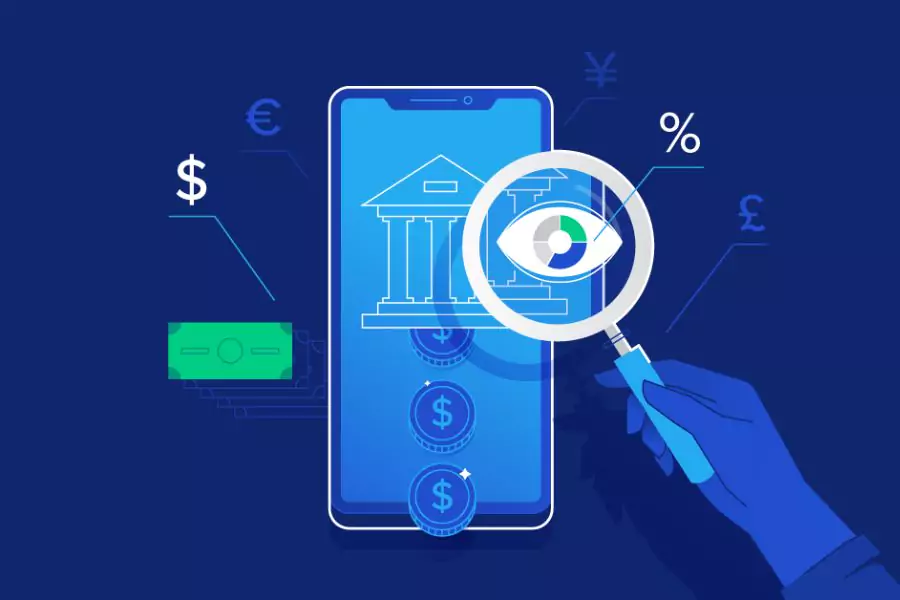The Future of Banking: Exploring the Advancements in Fintech

Fintech | Mykaba
The banking industry has come a long way since its inception, and with the advancements in technology, the future of banking seems brighter than ever. The rise of fintech has revolutionized the way we handle our finances, and it’s only getting better. With the introduction of digital banking, mobile payments, and blockchain technology, the banking industry is undergoing a significant transformation. The new era of banking promises to be more convenient, efficient, and secure, giving customers more control over their finances and making banking accessible to everyone, regardless of their location. In this article, we will explore the latest advancements in fintech and how they are shaping the future of banking. From mobile banking apps to AI-powered chatbots, we will uncover the technology that is driving the fintech revolution and how it is changing the banking landscape for good. Are you ready to dive into the future of banking with us? Let’s get started!
Advancements in Fintech
The banking industry has undergone a massive transformation in recent years, thanks to the advancements in fintech. Fintech, or financial technology, refers to the use of technology to improve and automate financial services. The introduction of fintech has enabled banks to offer more efficient and convenient services to their customers.
One of the most significant advancements in fintech is the introduction of digital banking. Digital banking allows customers to access their bank accounts and perform transactions online, without ever having to visit a physical bank branch. This has made banking more convenient than ever, as customers can perform transactions from the comfort of their homes or offices.
Another significant development in fintech is the introduction of mobile payments. With mobile payments, customers can make payments using their smartphones, making it more convenient than carrying cash or credit cards. Mobile payments have also made it easier for businesses to accept payments, as they can now accept payments using a mobile device.
Finally, blockchain technology is another significant advancement in fintech. Blockchain technology is a decentralized system that allows for secure and transparent transactions. This technology has the potential to revolutionize the way we conduct financial transactions, making them more secure and efficient.
Benefits of Fintech in Banking
The introduction of fintech has brought many benefits to the banking industry. One of the most significant benefits of fintech is the increased convenience it offers to customers. With digital banking and mobile payments, customers can perform transactions from anywhere at any time, making banking more accessible than ever.
Another benefit of fintech is the increased efficiency it offers to banks. With the automation of financial services, banks can now offer faster and more efficient services to their customers. This has led to reduced transaction times and increased customer satisfaction.
Finally, fintech has also increased the security of financial transactions. With the introduction of blockchain technology, transactions are now more secure and transparent than ever. This has led to a reduced risk of fraud and increased trust in the banking industry.
Impact of Fintech on Traditional Banking
The rise of fintech has had a significant impact on traditional banking. With the introduction of digital banking and mobile payments, traditional banks are now facing increased competition from fintech startups.
Traditional banks are also facing pressure to adapt to the changing landscape of banking. With the increased convenience and efficiency offered by fintech, customers are now demanding more from their banks. Traditional banks are now being forced to offer more digital services and improve their overall customer experience.
However, traditional banks still have an advantage over fintech startups in terms of trust and stability. Traditional banks have been around for decades and have built a reputation for being reliable and trustworthy. This is something that fintech startups still need to establish.
Fintech Trends to Watch Out For
Fintech is a rapidly evolving industry, and there are many trends to watch out for in the future. One of the most significant trends in fintech is the use of artificial intelligence (AI) and machine learning. AI-powered chatbots are becoming increasingly popular in the banking industry, as they can provide customers with instant support and assistance.
Another trend to watch out for is the use of big data. With the increasing amount of data being generated, banks can now use this data to gain insights into customer behavior and preferences. This can help banks to offer more personalized services to their customers.
Finally, the use of blockchain technology is another trend to watch out for in fintech. With the potential to revolutionize the way we conduct financial transactions, blockchain technology is expected to play a significant role in the future of banking.
Fintech and Digital Transformation
Fintech is a key driver of digital transformation in the banking industry. With the introduction of digital banking and mobile payments, banks are now being forced to adopt digital technologies to remain competitive.
Digital transformation is not just about the introduction of new technologies; it’s also about changing the way banks operate. Banks need to adopt a more customer-centric approach, focusing on delivering a better customer experience.
Fintech startups are leading the way in digital transformation, as they are more agile and able to adapt quickly to changing customer needs. Traditional banks are now being forced to adopt a more innovative approach to keep up with the competition.
Challenges in Implementing Fintech in Banking
Despite the many benefits of fintech, there are also many challenges in implementing it in the banking industry. One of the biggest challenges is the need for regulatory compliance. Banks need to comply with strict regulations to ensure the security and privacy of customer data.
Another challenge is the need for investment in new technology. Fintech startups are able to adopt new technologies quickly, as they are not burdened by legacy systems and processes. Traditional banks, on the other hand, need to invest in new technology while still maintaining their existing systems.
Finally, there is also a need for banks to change their organizational culture. Banks need to adopt a more agile and innovative approach, which can be challenging for organizations that are used to a more traditional way of doing things.
Future of Fintech in Banking
The future of fintech in banking looks bright. With the introduction of new technologies such as AI, big data, and blockchain, the banking industry is set to undergo a significant transformation.
Fintech startups are expected to continue to disrupt the banking industry, forcing traditional banks to adopt a more customer-centric and innovative approach. This is expected to lead to increased competition and improved services for customers.
Finally, the adoption of fintech is expected to lead to increased financial inclusion, as banking services become more accessible to everyone, regardless of their location or financial situation.
Fintech Startups to Watch Out For
There are many fintech startups that are making waves in the banking industry. One of the most notable startups is TransferWise, which offers low-cost international money transfers. Another notable startup is Robinhood, which offers commission-free trading on stocks and cryptocurrencies.
Finally, there is also Revolut, which offers a range of digital banking services, including currency exchange and budgeting tools. These startups are leading the way in fintech innovation and are expected to continue to disrupt the banking industry in the future.
Conclusion
The future of banking looks bright, thanks to the advancements in fintech. With the introduction of digital banking, mobile payments, and blockchain technology, the banking industry is set to undergo a significant transformation.
Fintech is driving digital transformation in the banking industry, bringing increased convenience, efficiency, and security to customers. However, there are also many challenges in implementing fintech in banking, including regulatory compliance and the need for investment in new technology.
Despite these challenges, the future of fintech in banking looks promising. Fintech startups are expected to continue to disrupt the banking industry, forcing traditional banks to adopt a more customer-centric and innovative approach. This is expected to lead to increased competition and improved services for customers.
Finally, the adoption of fintech is expected to lead to increased financial inclusion, as banking services become more accessible to everyone. The future of banking is here, and it’s more exciting than ever!









